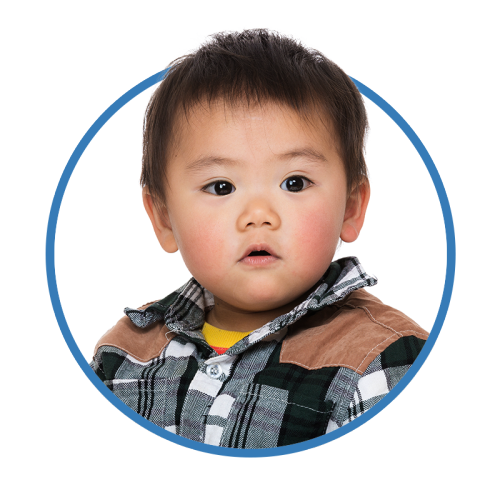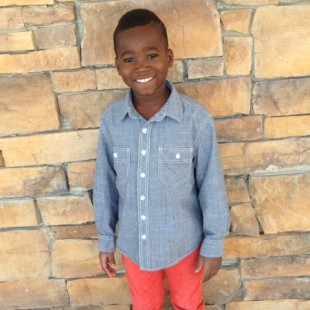Step 1: Do I qualify?
Here are the minimum qualifications that we have for international adoptions.
- One parent must be between the age of 23 and 55 years of age.
- Both couples and single persons can apply for adoption. Divorces are okay.
- Must be in good general physical and mental health and have a normal life expectancy.
- Must not have had an unfavorable recommendation for adoption in a prior home study.
- Must not have been convicted of a crime against a person or family, or public indecency, and must not have been convicted of a felony relating to any controlled substance abuse in any state in the United States.
- Must provide information necessary to conduct an abuse/neglect registry check and the results must show no history of abuse/neglect.
- Must be able to show financial responsibility to care for the adopted child or children you wish to adopt. (125% above Federal poverty guidelines)
- Must live in a single family residence such as a house, apartment, or condo. Cannot be temporarily living with parents, friends, relatives, etc.
If you do not meet these qualifications, there may be other options available to you. If cost is one of the primary concerns, one option may be to participate in your state’s foster care program. Foster parents are often reimbursed by the state for caring for a child.
Step 2: Which Type of adoption is best for me?
Domestic
Pros:
- Newborns are available
- Medical and social information is known, usually in great detail
- If you desire, you may have a relationship with the birth parents though “Open Adoption”
Cons:
- Birth mothers pick adoptive parents
- It may take years to get a referral
- It is possible at birth parent(s) will not pick you
- In some cases, adoptions may be undone and parental rights given back to the birth parent(s)
International
Pros:
- Almost always guaranteed a referral
- Most adoptions are completed within 24 months
- More control over child characteristics
Cons:
- Costs can be upwards of $30,000+
- Medical and social information may be limited or incomplete
- More expensive than domestic
- Programs may close with little or no notice
2nd Chance
Pros:
- Generally least expensive form of adoption
- Lots of information available about the child i.e., medical reports, school records, counseling notes, therapy notes, etc.
- State subsidies may be available for these children.
Cons:
- Children generally have medical, social or behavioral issues
- Many families may express interest in a particular child.
Step 3: How do I apply?
Once you have decided which type of adoption is right for you, please call our office at 801-334-8683 or email info@wiaa.org. Our office manager will send you an application based on the type of adoption you request. Complete the application and send the application fee to office.
Step 4: How will I be issued a child referral?
Domestic:
You will prepare a prospective adoptive parent profile. Generally, when the birth mother is in the 3rd trimester she will be presented the prospective adoptive parent profiles. From these profiles she will choose a family that will adopt her child. The referral of the child rests solely upon the birth mother.
International:
Parents may pre-identify a child they hope to adopt, if allowed by the foreign country. This pre-identification IS NOT a referral. You must have approval from both the US government (USCIS) and the foreign government to receive a referral for international adoption. Only then can a legal referral be issued. Some countries will allow you to choose from among waiting children. Others will assign you a child based on the characteristics presented to them in your paperwork. You will have a minimum of 2 weeks to accept or reject a referral. A social worker will be available to council with you during the referral process.
2nd Chance:
Children available through the 2nd chance program are listed as available for adoption. Prospective adoptive parents may contact us on any child that is available for adoption. However, much like domestic, the dissolving family chooses the adopting family from the available pool of prospective adoptive parents. To be considered for a referral a prospective adoptive family must have a valid domestic home study.
Step 5: I have a referral, now what?
Domestic:
Prepare for the imminent arrival of your new little one. Use this time to gather any items you may need.
International:
You must wait until you are invited by the foreign government to travel to finalize your adoption. Use this time to prepare yourself for the arrival of the child. You may want to consider doing more research on the specific needs your child may face and find appropriate local resources.
2nd Chance:
Work closely with the social worker, case manager and your adoption attorney to create a transition plan for transfer of custody of the child.
Step 6: How will I obtain custody of my child.
Domestic:
If the birth mother requests, you may be asked to attend the birth of the child. If she does not request this, you will be invited to the hospital shortly after the birth of the child. Legal relinquishments may only be obtained 24 hours after the birth of the child. After the legal relinquishment you will be granted temporary custody of the child. Transfer of custody usually takes place at the hospital after the child has been released.
International:
You will need to travel to the foreign country to obtain custody of the child. Transfer of custody is monitored by the country’s governing adoption authority and under the laws of the foreign country. Rarely, you may have your child escorted to the US if the foreign country allows.
2nd Chance:
Transfer of custody is detailed in the transition plan made by you, the dissolving family, your adoption attorney, and your social worker. If you are adopting a child from another state, transfer of custody may take longer depending on the states’ handling of the Interstate Compact on the Placement of Children (ICPC) paperwork for the child. Your adoption attorney will help you through this process.
Step 7: When is the adoption finalized?
Domestic:
Your state of residence outlines the timeframe to complete a domestic adoption. For instance in Utah, the child must have resided with you for 6 months. After the 6 month wait you will present your adoption paperwork to the court where a judge will finalize your adoption. If you are finalizing your adoption out of the State of Utah, we recommend hiring an adoption attorney in your state of residence that can assist you with your adoption paperwork and any ICPC filings.
International:
For Hague Cases:
Finalization of an adoption depends on the laws the foreign country. Typically, the adoption will be finalized in the foreign country. You may be required to travel to the foreign country to finalize the adoption. If the adoption is not finalized in the foreign country, you will be required to travel to the foreign country to gain custody of the child. After you gain custody, you will need to bring the child back to the U.S. After a post-placement period determined by the foreign country, you will be allowed to finalized the adoption in the US.
For Non-Hague Cases:
If you, or your spouse, have personally seen the child prior to finalization, the adoption may be finalized in the foreign country, if the foreign county allows. If you, or your spouse, have not personally seen the child prior to finalization, US authorities REQUIRE you to complete the adoption in the U.S., even if the adoption was finalized in the foreign country.
Second Chance:
Your state of residence outlines the timeframe to complete a domestic adoption. For instance in Utah, the child must have resided with you for 6 months. After the 6 month wait you will present your adoption paperwork to the court where a judge will finalize your adoption. If you are finalizing your adoption out of the State of Utah, we recommend hiring an adoption attorney in your state of residence that can assist you with your adoption paperwork and any ICPC filings.
Step 8: I adopted internationally, will my child have citizenship?
Citizenship is determined by the United States Citizenship and Immigration Services. Generally for Hague cases, if the adoption is completed in country your child will receive automatic citizenship upon residing in the U.S. If your adoption is not finalized in country, your child will receive a Green Card upon entry into the U.S. Once the adoption has been finalized in the U.S., you may file for full citizenship of your adopted child.
Generally for non-Hague cases, if the adoption is finalized in the foreign country and you, or your spouse, personally saw the child prior to adoption, the child will be granted automatic citizenship upon residence in the U.S. If the adoption is not finalized in country or you, or your spouse, did not personally see the child prior to adoption, your child will receive a Green Card upon entry into the U.S. After the adoption (or re-adoption) in the U.S., you may file for full citizenship of your adopted child.
For those living abroad, citizenship of your adopted child is determined by USCIS on a case-by-case basis. Please visit www.uscis.gov for more information on citizenship though adoption.












